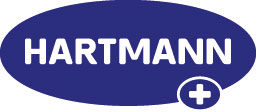Zena Moore

Zena is a registered nurse, who holds a PhD, a FFNMRCSI, an MSc in Wound Healing & Tissue Repair, an MSc in Leadership in Education, a PGDip in Wound Healing & Tissue Repair, and a Diploma in Management.
Zena is the Chair in Nursing at the Royal College of Surgeons in Ireland (RCSI), University of Medicine and Health Sciences, is Head of the School of Nursing & Midwifery and Director of the Skin Wounds, and Trauma (SWaT) Research Centre at RCSI.
Zena’s area of research interest is Wound Healing & Tissue Repair, and she has published over 300 articles, guidelines, consensus documents and book chapters in this field.
In 2022 Zena received a lifetime achievement award from the World Union of Wound Healing Societies in recognition of her contribution to this field of research and practice.
Zena is chair of the European Pressure Ulcer Advisory Panel, International Guideline Governance Group and is also a Past President of the European Wound Management Association. Zena is an Adjunct Professor, School of Nursing & Midwifery, Griffith University, Queensland, Australia, a Visiting Professor at Ulster University, an Honorary Visiting Professor, Cardiff University, Cardiff, Wales, a Professor at the Department of Public Health, Faculty of Medicine and Health Sciences, Ghent University, an Honorary Professor, Lida Institute, Shanghai, China and an Adjunct Professor, Department of Nursing, Fakeeh College for Medical Sciences, Jeddah, KSA.
Presentation at Advanced Pressure ulcer prevention and management when caring for people with complex health needs study day
Assessing sub-epidermal moisture as a predictor of pressure damage
Abstract
Pressure ulcers, are a significant concern in healthcare, particularly for patients with limited mobility. Contemporary understanding of PU development highlights that tissue damage begins below the skin surface before visible signs appear, driven by prolonged mechanical load, ischemia, and inflammation. Early detection and prevention are crucial, yet traditional methods rely on visible damage, which can occur too late for effective intervention. This is further compounded among individuals with dark skin tones, where visual signs of pressure ulcer damage are difficult to see.
Sub-Epidermal Moisture (SEM) measurement is an emerging technique designed to detect early changes in tissue moisture levels, providing a non-invasive method to identify early pressure ulcer development. SEM detects localised fluid build-up at the subcutaneous level, often preceding visual skin breakdown. Research into SEM measurement has shown promising results, indicating that it can act as a reliable early predictor of pressure damage. Studies suggest that SEM measurements can detect tissue changes up to 5 days before the appearance of clinical symptoms, offering a window for proactive intervention. This technology has the potential to positively influence pressure ulcer prevention by allowing healthcare providers to address risk earlier and more effectively.
By utilising SEM measurement data, clinicians can modify care strategies such as repositioning schedules and pressure redistribution. This proactive approach can reduce the incidence of pressure ulcers, improving patient outcomes and reducing healthcare costs. SEM measurement represents an important advancement in pressure ulcer prevention, moving the focus from reactive to preventative care, with the potential to transform clinical practices.














